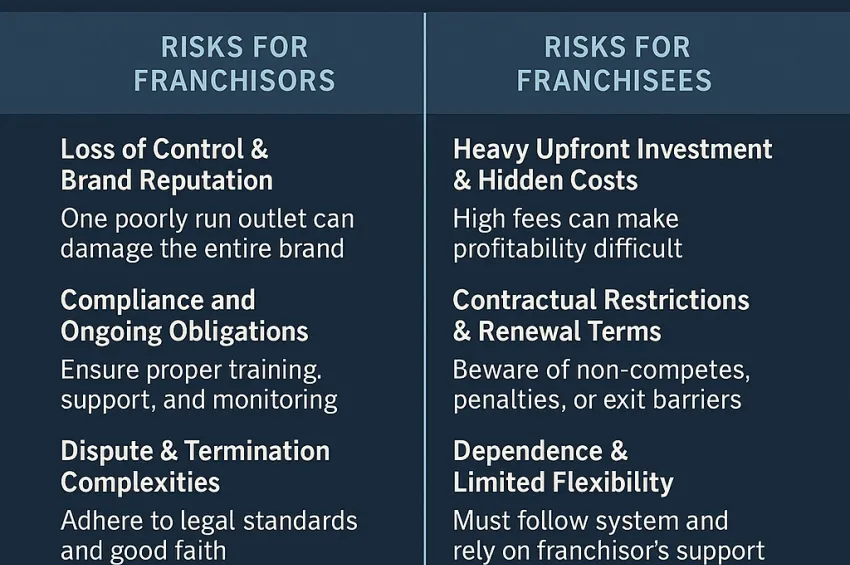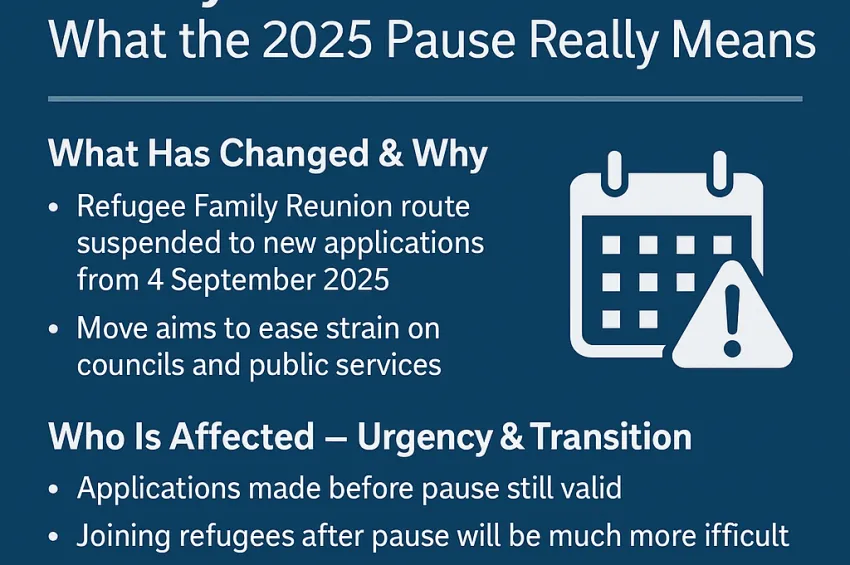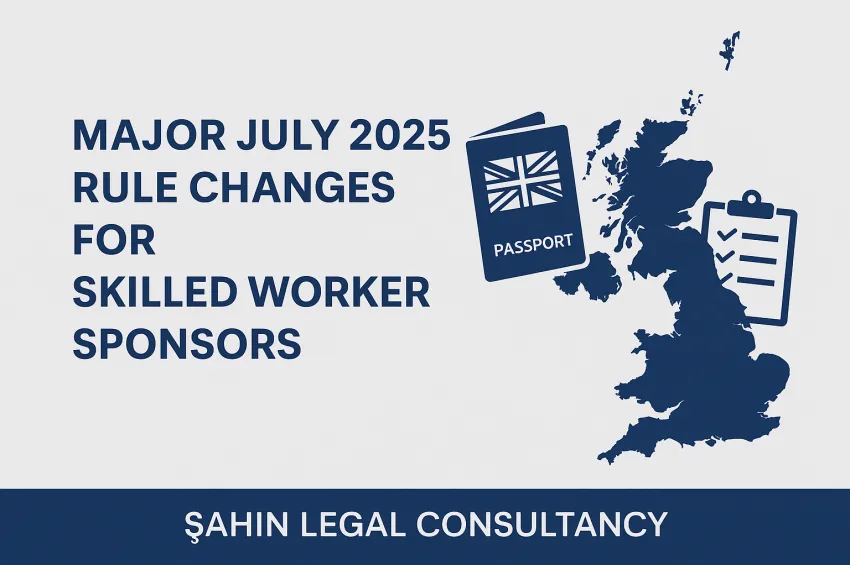
Franchising offers a tested route for business growth—but careful navigation is crucial. Whether you’re expanding as a franchisor or investing as a franchisee, understanding the legal pitfalls can save you serious trouble down the line.
Risks for Franchisors
-
Loss of Control & Brand Reputation
-
Franchisors rely on franchisees to uphold brand standards. One poorly run outlet can tarnish the entire network .
-
Legal liability may arise if franchisees act unlawfully or breach regulations, with reputational fallout impacting your business .
-
-
Compliance and Ongoing Obligations
-
Franchisors must provide training, operations manuals, support, and monitor compliance—often overlooked and resource-intensive .
-
Failure to meet legal standards under consumer, employment, or competition law can lead to enforcement or claims .
-
-
Dispute & Termination Complexities
-
Franchise agreements are frequently weighted in the franchisor’s favor but termination remains a high-stakes legal area .
-
The emerging duty of good faith, as confirmed by Ellis v John Benson Ltd [2025], means unfair conduct may render termination unlawful .
-
Risks for Franchisees
-
Heavy Upfront Investment & Hidden Costs
-
Initial fees and ongoing royalties can be substantial, affecting profitability .
-
Beware of hidden marketing levies, mandatory supplier markups, or unexplained additional expenses .
-
-
Contractual Restrictions & Renewal Terms
-
Agreements may include restrictive non-competes, short renewal windows, or unclear exit terms, often skewed heavily in favor of the franchisor .
-
Leaving prematurely can result in steep financial penalties—sometimes requiring payment of lost franchise fees unless mitigated by the franchisor .
-
-
Dependence & Limited Flexibility
-
Franchisees must follow the franchisor’s system closely—little room for innovation or adapting to local market needs .
-
A faltering franchisor or lack of support may leave franchisees vulnerable and unsupported .
-
-
Disclosure and Misrepresentation Risks
-
UK has no mandatory disclosure regime; franchisees must carefully review facts and warranties to guard against misrepresentation .
-
Red flags include high turnover of franchisees, gag orders, or excessive franchisee churn—revealed often in disclosure documents .
-
Real-Life Spotlight: The Vodafone Case
A stark example of franchisor-franchisee risk gone public: in 2024, a group of UK Vodafone franchisees filed a £120 million legal claim, alleging harsh, unexplained commission cuts post-pandemic—causing financial ruin for many .
Despite settlement efforts, Vodafone has recently terminated contracts of some involved—highlighting how disputes can escalate, attract regulatory attention, and damage reputations .
Table: Risk Snapshot
| Role | Key Risks |
|---|---|
| Franchisor | Brand control, compliance burden, legal exposure |
| Franchisee | Financial risk, restrictive terms, dependency |
| Both | Disputes, termination complexity, reputational stakes |
Final Thoughts
Franchise agreements in the UK are complex, often favoring one side and operating within a loosely regulated environment. Protect your interests by negotiating transparency, escape routes, mutual duties, and fair termination terms.
Ready to navigate franchising with confidence? At Sahin Legal Consultancy, we can help draft strong agreements, conduct due diligence, and protect your business—whether you’re franchising out or joining in.















